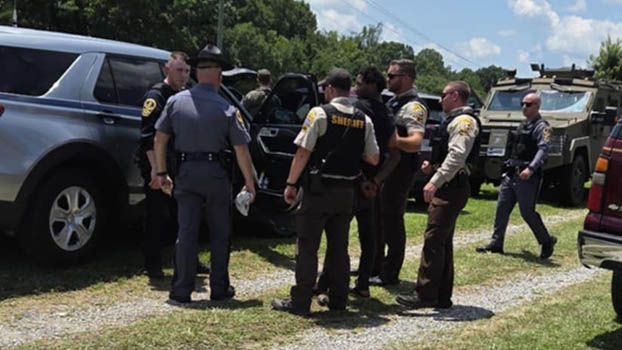New laws taking effect
Published 9:28 am Wednesday, July 3, 2019
We spent much of the 2019 session focused on taxes and the state budget, but we also passed some significant legislation that will impact the lives of everyday Virginians in other ways. I’ve included a short list with highlights below.
HB 1839 Industrial hemp; federal Farm Bill; emergency. Farmers may now grow industrial hemp, and manufacture hemp products, including oils, provided they contain no more than 0.3 percent THC, the psychoactive chemical in marijuana. This bill opens the door for Virginia’s nascent industrial hemp industry, conforming state law to the 2018 Farm Bill passed by Congress.
HB 2786 Coal combustion residuals impoundment; closure. This bill mandates that the coal ash ponds at Bremo Power Station, Chesapeake Energy Center, Chesterfield Power Station, and Possum Point Power Station be closed in an environmentally-responsible way that doesn’t burden utility customers. Additionally, the legislation stipulates that the relocation of the coal ash must not cause local roads to be jammed or unsafe. Customers whose groundwater has been contaminated by ash residue will receive utility water connections.
HB 2745 Dangerous dog; deferral of proceedings. This law will give courts leeway in dealing with dangerous dogs. Instead of automatically declaring that a dog is dangerous and triggering significant restrictions on the dog and its owner, the judge can create what amounts to dog probation, giving the dog and its owner a chance to have proceedings dismissed. If the terms are violated, the dangerous dog law kicks in.
HB 2170 False caller identification information; penalty. This bill makes “spoofing” caller ID information, a favorite trick of spam callers, a Class 3 misdemeanor, with an escalation to Class 2 on the second offense.
SB 1349 Safe reporting of overdoses. This bill establishes a safe harbor for those who report a drug overdose. Until now, those who reported an overdose were required to cooperate with law enforcement investigations in order to claim they were a good Samaritan, and not involved with the overdose.
HB 2609 Department of Criminal Justice Services; school resource officers. This law establishes that school resource officers hired after July 2020 to go through school-specific training and requires that each school have at least one administrator who has gone through school safety training provided by the Virginia Center for School and Campus Safety.
SB 1179 Application for a resident concealed handgun permit; United States Armed Forces. Clarifies that members of the Armed Forces whose primary residence is Virginia, but are stationed elsewhere, are eligible to apply for a Virginia resident concealed handgun permit.
HB 1853 Virginia Property Owners’ Association Act; home-based businesses. Clarifies that home-based child care is an allowed use for homes under zoning laws, unless specifically restricted by the declaration or a homeowners association’s bylaws.
HB 2173 Public institutions of higher education; tuition and fee increases; public comment. Requires public hearings by Boards of Visitors before increasing mandator fees or tuition. Requires that Boards of Visitors of public colleges and universities must hold at least one public meeting prior to increasing tuition and/or fees.
HB 1883 Motor vehicle insurance policies; foster parents and foster children. Car insurance providers are prohibited from denying coverage simply because an application or policyholder is a foster parent.
HB1915 Expedited review of adverse coverage determinations; cancer patients. Allows cancer patients to appeal a coverage denial before they have exhausted the insurance company’s internal appeals process. For cancer patients, time is often of the essence, and internal insurance appeals can drag out for a long period of time.
HB2515 Health insurance; payments made on behalf of enrollee. Requires health insurance companies to count any money paid on behalf of a covered person toward their out-of-pocket maximums or cost sharing requirements — effectively allowing consumers to use coupons or other discounts for drugs, but still have the full cost applied to their out-of-pocket maximum or deductibles. Would ban accumulator adjustor programs (AAPs). AAPs are regulations placed by insurance companies that prevent coupons from contributing to a patient’s deductible for prescription drugs, making health care more expensive.
HB 2538 Balance billing; elective services. This bill aims to end surprise “balance billing” by hospitals by informing consumers of what providers at the facility are covered by what insurance plans — and give them notice that they could be liable for “out of network” expenses if they don’t consult with their carrier to determine what is covered and what isn’t.
SB 1678 Family First Prevention Services Act; statutory alignment. Requires background checks for employees and volunteers at children’s residential facilities.
HB1712 Dismissal of summons for expiration of vehicle registration; proof of compliance. This bill allows judges to dismiss a ticket for expired registration provided the defendant provides proof to the court that they’ve renewed their registration before their court date.
HB 1790 Absentee voting; certain absentee voters permitted to vote after close of absentee voting location. Allows voters to cast an in-person absentee ballot after the registrar’s office closes, provided they were in line when the office was set to close.
DEL. C. MATTHEW FARISS represents Buckingham in the Virginia House of Delegates. His email address is DelMFariss@house.virginia.gov.




